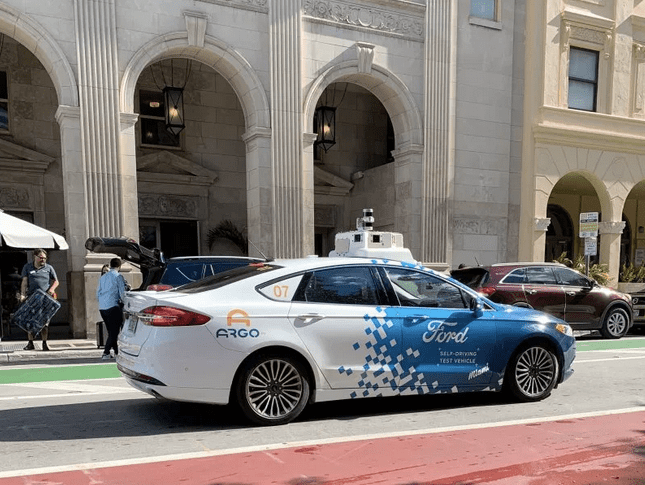As Congress attempts pass bipartisan legislation regulating self-driving vehicles, an Uber whistleblower wants car companies to pump the brakes on autonomous vehicle testing on public roads.
Former Uber executive Robbie Miller warns that the automobile industry is endangering pedestrians and drivers by testing their prototypes on public streets while continuing to rack up crashes. And virtually every automaker is eager to usher in the driverless future.
"The industry is being really dishonest about where they're at," Miller said in an interview on Automotive News's Shift podcast this week. "We're crashing as an industry more often than your normal driver would driving in the same domain. It's kind of crazy to say, 'Hey we're going to launch a self-driving car and we can't even drive safer than your average human when we have all this advanced technology and a safety driver in the vehicle.'"
Miller's primary concern over testing practices, which he explained in a Medium post in April, is that companies are using "total miles driven" as a metric for success and safety, but the reality is that non-driver cars are more likely than a car with a human driver to injure pedestrians and other motorists or destroy property.
He found that prototype AV cars had 4.3 crashes per million miles that resulted in an injury and 22.9 crashes per million that caused property damage, while a human driver's crash rate of 2.5 per million miles for injuries and 17.7 per million miles for damaged property. And crashes in self-driving cars occurred even with professional drivers behind the wheel trying to keep their prototypes safe.
Miller wants automobile companies to focus on avoiding preventable crashes, significantly reduce testing on public roads, and bring in a third party to audit programs. He doesn't trust Congress, which has asked stakeholders in the industry for help to develop a regulatory framework, to police an industry that is entirely focused on moving cars, as the Times recently revealed (pedestrian gates, anyone?).
"We need to first admit there's a problem and then we can start having a conversation," he said. "We need to bring in outside help. Right now conversation is based on trust. Every company is going out there and saying, 'Trust us.'"
Miller had made his warnings known to Uber days before a self-driving car killed a pedestrian in Tempe last March. He's still shaken by the incident and hopes that the leaders of these companies take safety warnings seriously, even if it means halting innovation.
"It's hard for these fleets with hundreds of vehicles to say, 'Hey there's something wrong we need to bring every single vehicle back and possibly stop for weeks and have hundreds of safety drivers sitting around.' But you need to be able to make that sort of decision," he said. "Basic ethics tells you that if you're putting people at risk like this, you need to stop."
For its part, Uber says it has learned from the crash, posting in Medium that the company has "made safety core to everything we do." Let's hope so because a lot is at stake. USA Today recently reported that there will be more than 30 million driverless cars on the road by 2040 — with the potential (key word there) of saving 30,000 lives per year. The Street estimated that there would be eight million autonomous vehicles on our streets by 2025.






